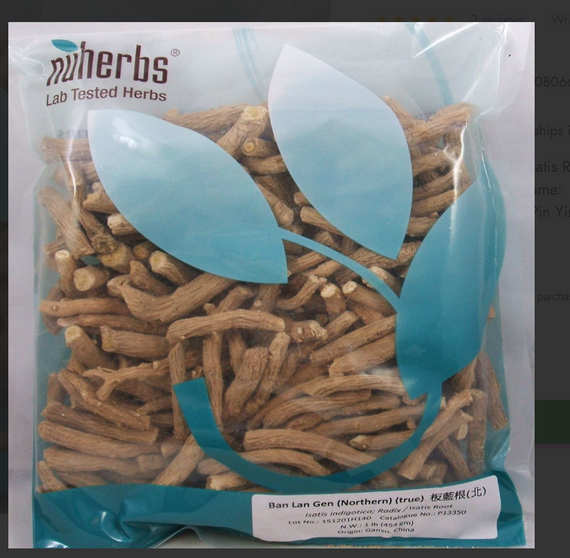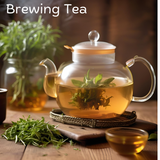There are no products listed under this category.
A Real Guide to Herbal Effects, When They Kick In, and What to Expect
Read time Appoximently 4 minutes.
You’ve probably seen all the promises—“supports immunity,” “clears heat,” “boosts energy.” But what does that really mean for you? Will you feel calmer? Sleep better? Digest easier?
Most herbal websites don’t answer the one thing you actually want to know:
What will I feel when I take this herb—and how soon will it work?
At 1st Chinese Herbs, we believe you deserve real, honest answers. In this guide, we’ll walk you through what herbal effects feel like, how long they typically take, what’s normal to expect, and 15 real-life examples of what people experience with popular Chinese herbs. Whether you're brand new to herbs or refining your routine, this page will help you shop smarter—and feel more confident in your wellness journey.
The problem? Most herbal websites focus on traditional uses, but don’t really explain what you—the person taking it—might actually experience in your body.
Let’s fix that.
Why This Question Matters
When you buy an herbal remedy, you want to feel something. Maybe more energy. Less tension. Fewer digestive issues. Better sleep.
But unlike pharmaceuticals that tend to give strong, fast results (and often side effects), herbs work gently and gradually. They're not meant to override your body. They're meant to support it.
And that difference in how they feel can be confusing unless someone explains it clearly.
What You’ll Learn Here
-
How long herbs usually take to work
-
What physical or mental sensations you might notice
-
What’s normal to feel—and what’s not
-
15 examples of real herbs and what they commonly “feel like”
First Things First: How Long Do Herbs Take to Work?
Let’s be honest—herbs don’t usually deliver instant results. But that doesn’t mean they’re not working. Here’s what to expect:
-
Fast-acting herbs: Some herbs like Ban Lan Gen (Isatis Root) or Shan Zha (Hawthorn) work within hours—especially when you’re sick or bloated.
-
Most herbs: You'll likely notice changes in 3 to 7 days of consistent use.
-
Deep tonic herbs: Roots like Dang Shen or He Huan Pi support deeper issues and often need 2 to 4 weeks for real results.
Key Point: Herbs Work Best When Used Consistently—Not Just Once and Done
Think of herbs like daily nourishment for your body’s healing systems—not like a rescue pill for sudden symptoms. While a few herbs may offer quick relief (like helping with bloating or a sore throat),
most Chinese herbs are designed to work gently and steadily over time. They support your body in rebalancing itself—not by overriding symptoms, but by encouraging long-term harmony.
This means that taking an herb once or twice, then expecting dramatic changes, often leads to disappointment. The real magic happens when herbs are taken consistently,
ideally for several days to a few weeks, depending on your goal. Just like eating healthy or exercising, the benefits build up.
So if you're serious about seeing results—whether it’s deeper sleep, better digestion, or more energy—commit to a regular routine. Herbal medicine is a partnership with
your body. Give it time, and you’ll start to notice the difference.
So… What Will I Feel?
This depends on the herb, your body type, and what you’re using it for. But here are some common sensations people report when an herb is working:
| What You Might Feel | Examples |
|---|---|
| Calmer mind | Gou Teng, Fu Ling, He Huan Pi |
| Less bloating or gas | Shan Zha, Shen Qu, Yi Yi Ren |
| More energy (not jittery) | Dang Shen, Huang Qi |
| Better sleep | Tian Men Dong, Fu Ling |
| Easier digestion | Zhi Shi, Shan Zha, Ginger |
| Fewer cravings or mood swings | Bitter Melon, Goji Berries |
| Clearer breathing | Huang Qi, Ban Lan Gen |
| Feeling “lighter” or less puffy | Yi Yi Ren, Fu Ling |
15 Common Herbs and What People Usually Feel
Let’s look at some of the top herbs people ask about and what you might notice:
| Herb Name | What You’ll Likely Feel | When to Expect It |
|---|---|---|
| Dang Shen (Codonopsis) | Gentle energy, improved appetite | 3–7 days |
| Gou Teng (Uncaria Vine) | Calmer mind, easier sleep | 1–3 days |
| Huang Qi (Astragalus) | More stamina, immune support | 5–10 days |
| Yi Yi Ren (Coix seed) | Less swelling, easier digestion | 2–4 days |
| Gou Qi Zi (Goji berries) | Brighter energy, better vision | 2–5 days |
| Chuan Xin Lian (Andrographis) | Throat relief, less heat | 12–36 hours |
| Bai Shao (White Peony) | Less cramping, better hormone flow | 7–14 days |
| Shen Qu (Medicated Leaven) | Less gas, better digestion | 1–2 days |
| Shan Zha (Hawthorn Berry) | Relief after heavy meals | 1–3 meals |
| Zhi Shi (Unripe Bitter Orange) | Gentle stimulation, gut movement | 1 day |
| He Huan Pi (Albizzia Bark) | Uplifted mood, emotional ease | 5–10 days |
| Tian Men Dong (Asparagus Root) | Moistened lungs and throat | 2–5 days |
| Ban Lan Gen (Isatis Root) | Less heat, sore throat relief | 12–24 hours |
| Fu Ling (Poria Mushroom) | Calm nerves, less water retention | 3–5 days |
| Bitter Melon (Ku Gua) | Reduced sugar cravings, mental clarity | 5–7 days |
Realistic Expectations: Herbs Are Not Magic Pills
Let’s set the record straight. Herbal medicine is incredibly powerful—but in a different way than most over-the-counter drugs.
You won’t:
-
Get a jolt of energy in 15 minutes
-
Knock out a virus in 30 seconds
-
Lose 10 pounds overnight
You will:
-
Feel gradual relief
-
Notice subtle shifts (less discomfort, more calm, easier digestion)
-
Support your body’s ability to heal naturally
Common Questions We Hear (And What We Tell Our Customers)
Q: Will I feel it immediately?
A: Some herbs, yes. Especially for digestion or flu-like symptoms. But most herbs are more subtle and require consistent use.
Q: What if I feel worse?
A: Sometimes herbs stir up what Chinese medicine calls a healing response. This is rare and usually temporary. If anything feels off, stop and check with a practitioner.
Q: Will I get side effects?
A: Most herbs are well-tolerated when taken as directed. But herbs can interact with medications, so always double-check if you’re on prescriptions.
How to Use This Info on Your Herb Journey
Before you start any herb, it’s important to go in with the right mindset—and the right information. Here’s how to make sure you’re getting the most out of your herbal routine:
-
Know why you're taking it. Don’t just take an “energy herb” because it sounds good—choose one that actually matches your body’s current pattern and the issue you're trying to address.
-
Make sure you’re targeting the root cause. For example, low energy can come from Qi deficiency, blood deficiency, or even dampness in TCM. Using the wrong herb may not get you the results you’re hoping for.
-
Double-check the botanical name. Many herbs have similar-sounding common names, but very different effects. Always verify the botanical name to ensure you’re getting the correct plant.
-
Use the right form for best results. Some herbs work best as decoctions (like roots and barks), while others are more effective as powders, capsules, or teas. Choosing the proper preparation method can make a big difference in how well the herb works for you.
-
Track how you feel. Keep a simple daily note: “Day 4 – slept better, still low energy.” This helps you stay aware of subtle changes over time.
-
Be consistent. Herbs are most effective when taken regularly, not sporadically.
When you combine the right herb, in the right form, with a clear understanding of your goal, you give your body the best chance to respond—and truly benefit.
Want Help Choosing the Right Herb?
You don’t need to guess. At 1st Chinese Herbs, we’re not just here to sell—we’re here to guide you.
Whether you’re new to herbs or deep into your wellness routine, we can help you find the formula or single herb that makes a real difference.
Contact Us or check out our Herbs by Health Goal section for personalized ideas











